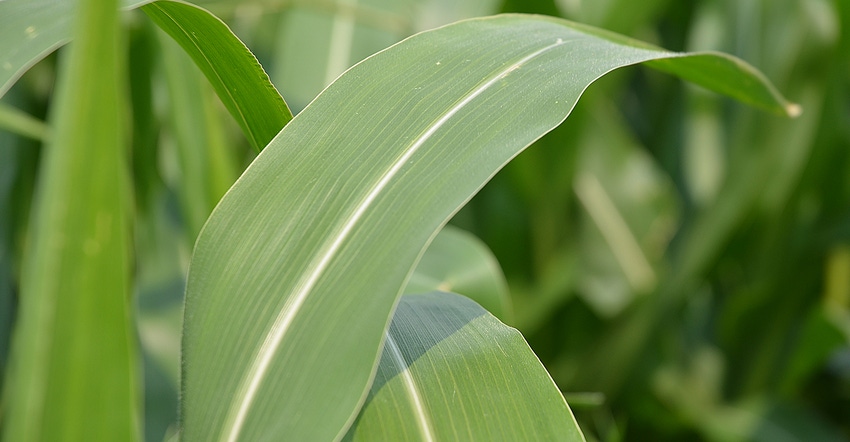April 23, 2018

By John Lee
Plant analysis is best used as part of a planned information cycle that goes like this: Soil test in the fall or spring, plant analysis in the early vegetative stage and plant analysis in the reproductive stage. For some crops, such as irrigated potatoes, a much more intense use of plant analysis on a weekly basis is recommended.
Plant analysis during early vegetative growth stages can be useful in a few ways. Early plant analysis can help determine if your fertilizer placement for nutrients such as phosphorus is doing the job. For example, if you broadcast and incorporate all of your P fertilizer before planting corn, and an early season tissue test shows the P level in the tissue is low, that is a problem. The low P level in the tissue indicates that the broadcast application is not providing adequate P early in the season, and you need to place some starter P fertilizer closer to the corn row in addition to some broadcast P.
Another use for early season tissue testing is trouble shooting problem areas. Once nutrient symptoms appear in the field, you have about 10 days to collect tissue and soil samples. You need tissue samples from the area that has symptoms, and an adjacent area with normal appearance. Soil samples from both areas are also needed to determine the nutrient levels in the soil as well. You need both because sometimes tissue nutrient levels may be low, but the soil nutrient levels are sufficient. In that situation, the low tissue levels may be caused by soil conditions like compaction, salinity etc. not a low nutrient level in the soil.
Corn side-dressing time is also when tissue testing can be useful. Sometimes in wet years a tissue test is useful in determining if the yellow corn is caused by nitrogen or sulfur deficiency (or both). Once you know which nutrients are causing the symptoms, a decision can be made for a side-dress fertilizer application. A soil test at side-dressing time can be used along with tissue analysis to help decide what rate of N or S needs to be applied.
Plant tissue analysis during the reproductive stage can also provide valuable information. During the reproductive stage, plants are removing nutrients from the soil at the highest rate all season. If a nutrient is found to be deficient at this stage of growth, either the rate of fertilizer applied was too low, or mobile nutrients like nitrogen or sulfur may have been lost. Unfortunately, once you are in the reproductive stage there is no good way to correct a nutrient deficiency, and yield has probably been lost. Tissue testing during the reproductive stage is used for making fertility decisions for the next season.
Best time
If I could only do plant analysis once a year, it would be whenever I see one part of a field struggling compared to the rest of the field. I would collect tissue and soil samples from the affected area, and an adjacent normal area, to determine if the symptoms were caused by a nutrient deficiency or some other soil or environmental factor.
Tissue testing for the most part is a look back at the nutrient status of the plant for the week or two before the sample was taken. Unfortunately, tissue testing is not good at predicting if a nutrient will become deficient in the next few weeks of the growing season.
Lee is a soil scientist and Certified Crop Advisor with Agvise Laboratories, Northwood, N.D., and Benson, Minn. Contact Lee at 701-587-6010
Find a CCA near you
To be a Certified Crop Advisor, candidates must be educated and experienced in crop advising; pass two comprehensive exams which prove their knowledge in nutrient management, soil and water management, integrated pest management and crop management; sign and adhere to a code of ethics; and maintain 40 hours on continuing education every two years. To find a CCA near you, see certifiedcropadviser.org/growers or call 701-212-0404 or email [email protected].
Lee is a soil scientist and Certified Crop Advisor with Agvise Laboratories, Northwood, N.D., and Benson, Minn. Contact Lee at 701-587-6010.
You May Also Like




